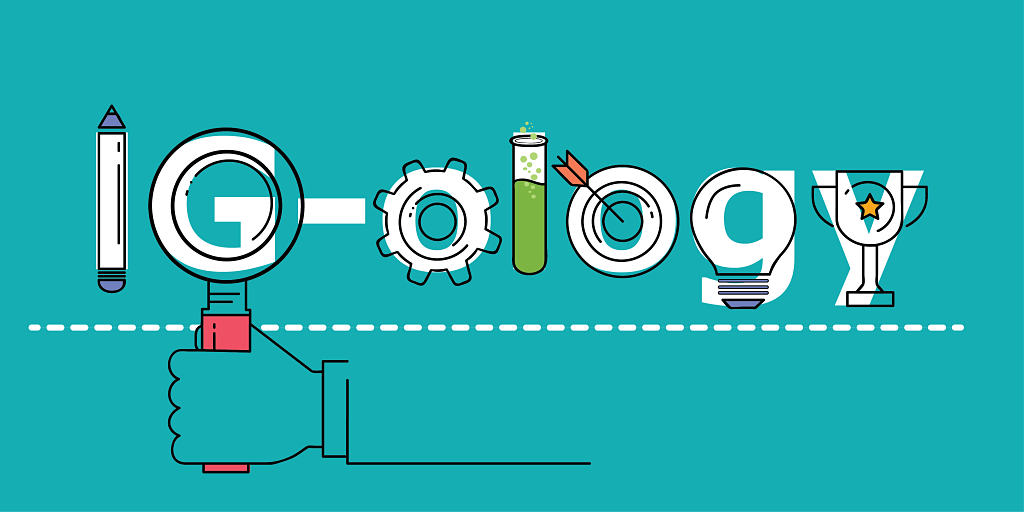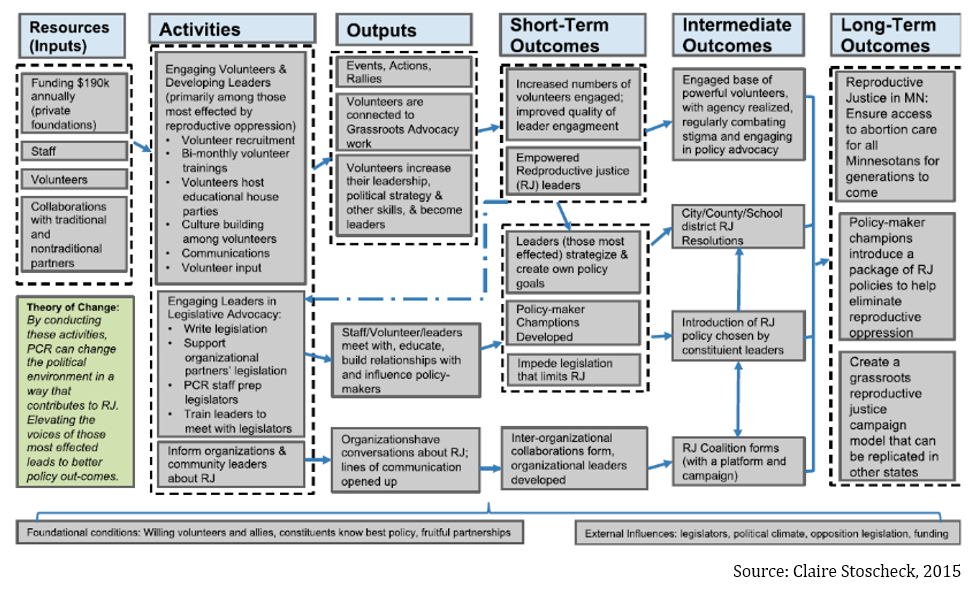
 Hi! I’m Courtney Clingan, a Senior Consultant at IG and your IG-Ologist for the month of June! There’s a lot of buzz around logic models lately, and because it’s a popular planning tool I’ve been hearing a lot of confusion and intimidation about them from clients. So what are logic models really, and why should you care?
Hi! I’m Courtney Clingan, a Senior Consultant at IG and your IG-Ologist for the month of June! There’s a lot of buzz around logic models lately, and because it’s a popular planning tool I’ve been hearing a lot of confusion and intimidation about them from clients. So what are logic models really, and why should you care?
Creating logic models is one of my favorite projects to be involved in because the end result is a concise, visual representation of what goes into your program and what short, intermediate, and long-term change happens because of your program.
Let’s break that down. When creating a logic model, you need to think about three main things.
Inputs - Resources required to make your program happen.
Activities - Document what you do to implement your program and the things that happen to create a result.
Outcomes - The change that happens as a result of participating in the program on a short, intermediate, and long-term basis.
Coming to an agreement on the key pieces in these three areas leads to the creation of a guiding document, like the one below, for all stakeholders to utilize and support their work.

Once you have a logic model, the benefits of and ways to use this tool are endless. Here are some highlights:
- Communications tool – Your logic model has all the information you need to talk about what your program is and the impact it has on your community.
- Resource for an evaluation plan – A logic model clearly spells out the changes you would expect to see happen because of your program. You can use these to create evaluation questions and check in on how you’re doing.
- Unified goals – Because a logic model contains outcomes, this is a way for you to focus your work and efforts in the community to support the realization of those outcomes. It is a way to unite and ground your team in the work they’re doing and why.
- Standing out in the funding process – We’ve heard from our clients that more and more funders are asking about logic models, so you can stand out by having one and utilize it to secure more funding for your programs.
Want to learn more about logic models and begin developing your very own? Join us for a two-part virtual workshop on August 4 & 6, 2020! We will teach you the “why” and “how” of using logic models to transform your program or organization into a well-oiled machine, clutter-free! Following the workshop, you can register to spend additional one-on-one time working together with our trainers to develop your logic model. Our training meets you where you are—no previous logic model expertise required.
